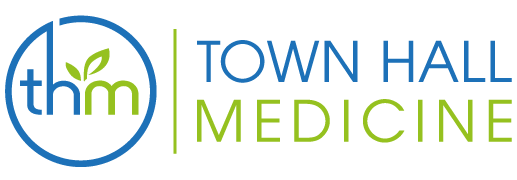THE MICROBIOME SUMMIT : Love Your Microbiome
The Importance of Prebiotics
Dr. Leo Dieleman, MD, PhD

The definition of prebiotics is ever evolving, these non-digestible long chain carbohydrates feed colonic bacteria. Our gut microbiome depends on prebiotics for survival. Dr. Leo Dieleman is an internationally recognized scientist on the role of intestinal bacteria, probiotics, prebiotics and diets for the treatment of IBD, and in this interview he discusses the role that prebiotics play in regulating inflammation, through the creation of short chain fatty acids. He discusses how typical prebiotics can cause gas and bloating – but how depriving ourselves of prebiotics in the long term is not the answer. If our diet is lacking prebiotic fibre, we may cause an unintended dysbiosis, which could further contribute to an inflammatory state.
- Tracey:
- So, we’re here today with Dr. Leo Dieleman. Leo is a gastroenterologist and a clinician scientist, and also a professor at the University of Alberta. Thank you for joining me here today, Leo.
- Leo:
- Okay, thank you. I’m glad to be here.
- Tracey:
- What I want to get into now, is a discussion on prebiotics, which I think is even a more mysterious area, that we don’t really have a lot of information on or clarification on. Can you give that to us?
- Leo:
- You know I have to be very honest with you, the definition of prebiotic I think go all the way back to, it might of been like, 2005. It was made by a Belgian scientist called Roberfroid. And he, basically defines prebiotics as, fermentable long-chain carbohydrates that are indigestible by the body – and usually, through a fermentation process by the colonic bacteria, give the health benefits to the host. So, the health benefit is the same, we now talk about life organism we actually are talking about an un- digestible substrate. And it’s typically a long-chain carbohydrate that the body doesn’t have the enzymes for, to digest it. Meaning, all the way and to the colon, and that’s why it becomes important. The colonic bacteria I am using is something they feed upon, this is the substrate for beneficial organism that are living in the colon that are depending on this for their own metabolism. And what they then do is they ferment [it and] the fermentation process results in several things but most importantly a production of short-chain fatty acids. Now, what are short chain fatty acids? The most important one is butyrate, is a substance that, the fatty acids that will, if you don’t have it, your colonocytes, your epithelial cells, the epithelial lining of the colon, will die. It is something that keeps the cells happy. But short-chain fatty acids also have anti-inflammatory mechanisms. They are preventing inflammation. They make sure that you are not constantly inflamed, you are constantly activating and using your cells – they actually are inducing the T-regulatory cells, the T-cells that are keeping the inflammation in check, the so-called anti- inflammatory cells. There are several other beneficial responses, for instance they will seal up little micro leaks into the barrier, the intestinal barrier. So, otherwise what you have here is something that is a natural way of keeping inflammation in check.
- However, if you do not eat enough of those substances, those prebiotics, those bacteria are starving. And not making what you – and then interestingly enough, for people who have a lot of those prebiotic fibres, the body will change some of these organisms to more pathogenic organisms. All of a sudden you are in an inflammatory state. So, it’s a tight balance. Now, the side effects of this fermentation process, is the production of gas – of hydrogen. So, if people eat too many of those prebiotic fibres, they’ll then experience gas and bloating, and if you remember – those are the same organisms responsible for gas and bloating when you have Irritable Bowel Syndrome. And then they tell you to go on the low FODMAP diet. So, low-FODMAP diet, now, I want to deprive myself of these kinds of fibres so I don’t have gas and bloating – down the line, you’re maybe actually be not doing yourself a favour, because now you have less gas and bloating, but you might also have less organisms that actually really have the health benefits for you.
- Tracey:
- That’s right. When Dr. Peter Gibson spoke to us about the low FODMAP diet, he said, “it’s not a forever diet” and that was the one thing he wanted to make very clear.
- Leo:
- Yes, I think, and it’s actually interesting that he said that. Because Peter Gibson went to Toronto and he gave one of those state of the art talks on low FODMAP. And I went to the microphone and I said, “Peter tell me, I’d be doing our patients with IBS a DIS-favour by having this thing for a long time” and he used to tell me, “Oh, it’s not proven yet”. I think – I just came back from a fibre symposium that was hosted by MIH, and MIH in health is a BIG deal. Scientific organ and their roles regarding when something new, something important comes out they want to put scientists together and we all came to the same conclusion: that if you deprive yourself of those kinds of fibres in the long run you could do damage to yourself.
- Tracey:
- Yeah.
- Leo:
- That actually leads to dis-regulated bacteria in your gut, called dysbiosis. But the definition of prebiotic is moving. I mean every time, there are whole working groups on this and I have been in one of them as well. Like two of the symposiums, there is a group called ISAPP. It basically stands for International Society for Pro-and Prebiotic research. And they are, one group that is headed by Glenn Gibson and he is a leading scientist in the definition of prebiotics. The mission keeps changing over time but what becomes apparent, and is also coming across in this fibre symposium, that it has to have a health benefit. And so, you can see that companies that make them and they make these prebiotic fibres, they need to come up with some measurable health benefit.
- Tracey:
- I see.
- Leo:
- Fortunately, that has not led to health benefit, in that it shows a physiological effect, or showing that it changes the microflora. That is not seen as a health benefit, so you can’t put it on a label.
- Tracey:
- It’s really confusing to think about, you are like, okay well I understand that prebiotics, even though we don’t have the definition worked out, they are helpful. Do I choose a supplement or am I looking at foods? And if I am looking at foods or if I am looking at supplements, how do I figure that out?
- Leo:
- Right. So, in order to eat food that is equal to the supplement I am taking, you have to eat a lot. So, I mean, I’m a little caught on this subject. I mean I always promote a healthy diet that contains enough of those prebiotic fibres. People generally need to eat something like 15 g a day of prebiotic fibres in order to get the health benefits.
- Tracey:
- Can you list some of those prebiotic foods?
- Leo:
- Some of the prebiotic fibres that are in foods, in leeks, asparagus, onions, garlic. And Jerusalem artichokes. And actually, the most important prebiotics in infancy is in breast milk. Breast milk contains, galactooligosaccarides, GOS, which is the most important prebiotic. So, in other words it tells you how important it is in our early lives to populate yourself. Then at least in the growth of specific beneficial organisms such as bifidobacteria. The bifidobacteria are now put into prebiotic and probiotic cocktails. And that is actually one of the most important ones and it is an important research subject, why breastmilk should be promoted because of their quantities of prebiotics in them. And changed the microflora in early infancy, in the first two or three years of life, that’s when you establish your gut microflora and that will stay with you for a long time.
- Tracey:
- So those are some of the foods – now what are some of the supplements that might be considered in the category of prebiotic?
- Leo:
- Yeah, so some of the supplements, I think the most well-known are like, inulin. These are coming from, they are extracted from chicory roots – from Belgium endive. But there are lots of product companies that are making now the prebiotics. Actually, in this fibre symposium, a number of them were making resistant starch. And resistant starch, particularly some of the, and also there you have resistant starch one, resistant starch four, and resistant starch four is better than one. Because resistance starch four has in some studies shown to be a very good regulating effect on diabetes. For a metabolic syndrome to lose weight. While these organisms in your gut not only are important for fermentation and short chain fatty acid they actually are also important for your metabolism. So, you can see how this is becoming a huge market in the metabolic syndrome and obesity. That these prebiotic fibres can have a measurable health benefit.
- Tracey:
- Right. Should probiotics and prebiotics be packaged up together?
- Leo:
- You know, I have gotten this question a lot and we call this symbiotic. Symbiotic that’s when you mean that you put them together. Now, the trouble is, which probiotic am I going to choose? It’s so host and strain specific that if you are ever to symbiotic I will take the DSL three. We will run it as a cocktail, as symbiotic with a probiotic and a bit of prebiotic. And then make sure that whatever is in this probiotic cocktail will be stimulated by the prebiotics. Sometimes I think that in choosing the right prebiotic why you stimulate a host of the bacteria instead of only one. This may be the way to go. But I also have studies and I am doing one and I am analyzing the data now for a dietary intervention study and I have found that a diet overrules whatever you put in the body. Whatever probiotic or prebiotic is just more important. And of course, a diet contains those prebiotic fibres.
- Tracey:
- Yeah, and as you said we probably should always be emphasizing diet first.
- Leo:
- Yes. We should always emphasize diet, we should also emphasize lifestyle first. And people that struggle with Crohn’s disease shouldn’t be smoking. And he shouldn’t take ibuprofen, or NSAIDs because it can poke little micro holes into your gut, intestinal wall. Right, so there is a lot of things that people can do although the last subject is a bit controversial because Bernstein said that he didn’t find a difference with people and their disease course IBD, when they were taking the NSAIDs such as ibuprofen, versus the ones that did not. I choose common sense because I know what these anti-inflammatories can do, and I said, well avoid them if you can. You play Russian roulette with your own body.
- Tracey:
- Thank you so much for sharing this incredible information with us,
- Leo:
- .
- Leo:
- You’re welcome.



